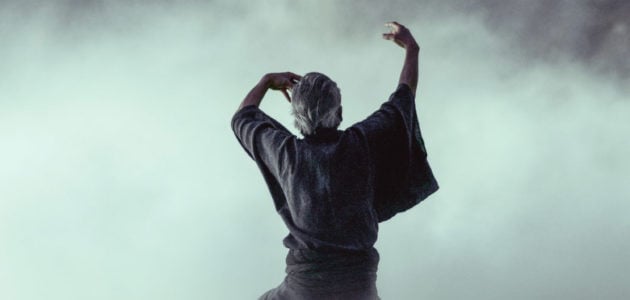
‘I Don’t Do Theatre’ and Other Actor Delusions
Look, every family has their Fredo, and even we tight-knit band of players have moments when we’d like to send our silly siblings off in a metaphorical fishing boat just to shut them up. Here is a list of some cringe-worthy actor delusions you may hear some actors say. Not to worry, those actors are just a little mistaken and mildly delusional. Let look at some common actor delusions…
‘I Don’t Do Theatre (I Only Do Film)’
The Delusion
Well then I guess I can’t throw this bunch of rotten tomatoes directly at you, which I bought especially to target that sort of foolishness! I suppose I am something of a purist when it comes to performance, but I can’t quite see why anyone would pursue such a harrowing, and, at times, painful career choice if you don’t love all facets of the craft. That, brothers and sisters, includes theatre. Fundamentally, acting is the lasagna-layered art of performing, and the medium through which you deliver this performance is not actually specified. Although there are certain respective stigmas attached to both mediums which more commonly come up when arguing in favour of film over theatre, and unfortunately feed this nefarious delusion.
For instance, theatre acting is often denigrated for needing to be ‘bigger’ in order to reach the back of the row, and therefore ‘fake’, while the intimacy of film is often celebrated for allowing the actors to find more ‘reality’ in their renditions. Yes, I understand the technical differences between having a camera pointed at you, inches from your nose, and scuffing the floorboards before an audience of 700; I understand it so much that I know there is nearly no difference when it comes to the fundamental rules of acting.
The Reality
The craft of bringing a character to life so that they may exist believably in a scene or long narrative should always be approached the same way. The actor embraces creative expression for a live, unedited stage show or the technologically disjointed enterprise of prerecording multiple takes with equal enthusiasm, and equal opportunities to evoke an invented reality. ‘Then why can I not simply prefer film over theatre if they’re just the same?’ I hear you ask. Well, you got me. Pat yourself on the back as I admit that there is one significant distinction between stage and screen acting: theatre is quintessential acting. It is one of the definitive processes of performative story, and the actor’s part in the telling of it can only be experienced in the immediacy and uniqueness of a theatre performance. It can only ever exist as an exquisite live experience in the moment of its making. To resist it, nay refuse the very attempt, is to deprive yourself of one of the archetypal and exemplary mediums through which your life’s passion found its origin, eons before you even knew what the word ‘motivation’ meant.
Perhaps, we could question what acting fundamentally means today? Is it purely a sign of modernity that video has killed the theatre star? It can’t be denied that film and television have the power to reach a greater audience and thus manifest broader recognition for an actor’s work today than theatre can. Master thespian and Academy Award winner Mark Rylance once said in an interview: “A few years ago I decided I wasn’t going to try to be a film actor, I was happy being a theatre actor. You know, what’s wrong with being a theatre actor? All theatre actors are told their whole career in this country you’ve got to do television, you’ve got to do film, then you can come back and do theatre.” Although, if fame and notoriety is the deciding factor to an actor’s preference for screen over stage, one can’t help but question that actor’s fundamental reasons for wanting to act at all.
Now that might be throwing out the bath water and realising the baby just went for a ride too. Beyond the business and beyond the technicalities and inaccurate stigmas, there is one large component that may deter actors from approaching theatre over film. Put simply: it’s fear. Anyone would have reservations to stand in front of a huge crowd of people and have to manifest even greater vulnerability through your art; natural-performer or not, we still get nervous. But, trust me on this, the courage to overcome those nerves comes from braving doing it at all. And the rewards to your acting can be limitless. Think of those moments when you feel too tightly wound on a film set, or just can’t find a connection with your scene partner. Theatre sports and exercises are designed to loosen you (your instrument) up, get you to engage with your fellow players, and help free you from the natural disbelief in the manufactured reality you’re creating. Consider this the next time you’re in a terribly sparse audition room, or shooting in a studio surrounded entirely by green screen; you will be so grateful you now understand the incredible stretch of your imagination after doing that minimalist rendition of Macbeth when the ghost of Banquo doesn’t actually appear and you have to believe his spectre is flying around the audience. (Based on a real challenge and experience, for which I am very thankful).
One of the most alluring beauties to the experiential craft of acting is that it is ever evolving, and the lessons you learn in one medium strengthen your creative power, reach, and prowess in the other. To exclusively covet one over the other is depriving yourself and your passion of the great gifts that come from the uniqueness of all approaches to acting.
‘I Don’t Rehearse’
The Delusion
This delusion is often linked to the aforementioned fallacy, and is usually justified by excuses like: ‘I don’t like to over-rehearse or make my performance stale’, ‘I like to keep it fresh for the day’, or ‘it’s better for me if I don’t completely learn my lines.’
These are all direct quotes from real life idiots – I should know, I used to be one. Which is also how I know there are a lot of (here comes that word again and for the last time I promise) fundamental acting misconceptions here. There are two main reasons why I champion theatre so much: firstly for the rehearsal process. And secondly because it empowers you with the challenge, knowledge, and ability to not only make it ‘fresh’ and give it ‘life’ on opening night because you desperately want to succeed, but also to ‘keep it fresh’ over and over and over again. There is no take two on stage and let me tell you something kids: IT. IS. LIBERATING. Rehearsal is the glorious process of building and reinforcing confidence in your craft, and once you do it successfully, you’ll know you can and don’t need to rely on an AD yelling ‘Cut! Again!’ Rehearsal is where you get to play before the play, to make the mistakes to vastly minimise bad takes on set or faults on stage.
The Reality
Rehearsal, whether for film or theatre, is actually the exhilarating process of deconstructing the scene and finding where your character fits in with your cast-mates and your director’s vision. It’s the perfect time to ‘get on the same page’ with your colleagues about the story, the project, and the ability to work toward building a cohesive team, which can be vital to the success of an often time-sensitive day shoot or months of running the same scene.
It is also a perfect space, opportunity, and environment to further familiarise yourself with those pesky things we call lines (although, you probably should already be off book anyway for optimum results). If you are one of those individuals who says: ‘I only do film’, and think you’re safe not to have your lines down because you’ll have another take to get them right, consider the following. Let’s say you can’t get the scene done 9 out of 10 attempts on the shoot and (gasp!) we’ve run out of daylight (said every person on almost every film set ever), then the editor is forced to use that last take which is probably rushed and a poor display of your talent, or worse, they decide that they unavoidably need to use one of your blunders, probably for continuity reasons (said every film editor ever).
Heed this warning, actors: know your lines.
And I get it, I really do. The horrific prospect of forgetting a line on stage in front of a bunch of people is often enough to deter some actors from attempting theatre at all. It’s literally a living nightmare. You know, the one where it’s opening night, a house full of reviewers, producers, Matthew Pseudonym who bullied you in high school, and your parents who claim they’ll love you no matter what. But you haven’t prepared well enough, and you don’t know the lines, and Freddy Kruger is your stage partner, and he’s killing you with laughter and making you corpse (pun) uncontrollably. The horror. I wish this agony on no one, not even that a-hole Matthew Pseudonym.
But it happens. It’s just part of the whole shebang! And guess what? She-bangs! She-bangs! She’s meant to! Trust me; this is actually one of the bittersweet wonders of doing theatre. Because if you’ve ever forgotten a line in a play, the ungodly hideousness of that feeling will make you never do it again! Halleluja! Amen?!
This misconception of ‘over-rehearsing’ is often poisoned by the venom of over-planning. It is possible that you can ‘pre-shape’ and solidify everything exactly down to the inflection, and risk leeching the life from your performance.
To quote the illustrious Howard Fine: ‘Pre-shaping is sticking something dead in the scene’.
I may soon have to write my official love letter to Howard Fine where I will further discuss the magic of his phrases like ‘mastery leads freedom’. In this case, he advises that knowing your lines inside and out frees you to be present in the scene and live the words authentically in the moment.
‘I Can’t Do Anything Without an Agent’
The Delusion
This is another unfortunate misconception and tends to affect all of us from novice to know-it-all. I have had several agents and managers in my time and (wearily) must admit that I have caught myself blaming them for lack of work just as many other actors do in their down time. Similarly, an actor just starting out in the industry often argues that their lack of progress is due to their ‘sans agent status’. I say similarly rather than conversely or ironically because it would seem that the seed of both these delusions are the same. They are both leaves of the same self-victimisation tree, excuses, whinging, and sometimes vegetative existence known as an actor’s career. Other leaves on this tree may include: ‘my headshots need updating before I can get work’; ‘My showreel is crap or non-existent, but I can’t do anything until I get more roles, and I can’t get more roles without a good showreel’. M’thinks thou doth protest too much.
Please, I beg you, don’t get me wrong! These are very real concerns in this business and I know how you feel; believe me. I have been there. They can seem like insurmountable bulwarks to your dreams, particularly when you’re starting out, but I implore you to try and see past the bull-something-else of them. It’s true: a bad agent or no agent can certainly hinder your chances, but so can a bad attitude.
(I refer you to a StageMilk article by Patrick Cullen that goes into more detail about this: Is Having An Agent Enough?)
The Reality
The fact is, we as an individual artist, brand, and sole trade business have unavoidable industry demands that can become very overwhelming very quickly, without any tangible sign of fostering our dream result. Acting is truly a long-game enterprise, but when we can’t recognise or produce any actual fruits of our labor, we naturally heap each hardship to our self-victimisation tree, also known as ‘the Why-Me-Tree’. Our narrative needs a villain and a rescuer, and ironically it is the agent who plays both roles.
I put it in these terms not to nullify the agent’s position, nor need for them, nor to absolve them of certain responsibilities they undertake to help with the development of an actor’s career, but to illuminate just how much blame we tend to put on outside factors for those feelings of dis-empowerment. ‘Well, if it’s not my agent it’s the unfair casting people!’ we also often complain, ‘they’re prejudiced against my type, and the industry only ever casts something that isn’t me!’ Again I hasten to add, all of these concerns germinate from the partially problematic operating system of this industry. Some might argue that the Why-Me-Trees are inevitable, but that thinking only muddies the crystal waters of dreams, desires and delusions.
My friends, the fault is not in the stars, but in ourselves. It is we who have the power and it is we who, by unfortunate default of our industry, tend to give it away. This is often because the industry promotes a more ‘conventional’ career path where an actor finishes drama school, gets an agent who gets them auditions, which hopefully leads to lots and lots of work. In reality, this is rarely the most common or effective journey and striving for it can at times make you miss opportunities you may have taken were you a freelance artist. For instance, I recently heard of an actor who, soon out of school, signed with a fairly prominent agent; however, because they were of such high calibre, they refused to put her up for smaller jobs like lower paying commercials or theatre work. These are the most common auditions you receive when starting out, and they act as stepping-stones for greater notoriety and opportunities, so not being seen for that at all, put this actor’s career progression at a disadvantage. If she had started as a freelancer, she may have had more liberty to try out the smaller jobs, connect with people from gig to gig, and even chip her teeth a little on the multifarious lessons to be found in the hustle of this bustling industry.
The truth is, we do have agency over what we do without an agent. And acknowledging this fact allows us to hold a healthy level of accountability for our own goals, which will make us fight harder to get them, without waiting for or blaming others for it not happening.
I’ve been in this biz for more than 15 years now and I must admit, I too have spent much of this time aiming for the ‘conventional’ path. But upon reflection of my many years of paid and creditable work, I assure you, the best and most prosperous jobs I booked came from networking, multitudinous educational options, one gig leading to the next, online casting avenues, and all either independent or in conjunction with various agent intervention. Rarely was it through what is considered the more ‘conventional’ channels. And as I have considered just how fruitful the culmination of my own indefatigable pursuit of work has really been, I notice that there are fewer and fewer leaves on my Why-Me-Tree. Find out more about how to find work in ‘unconventional’ ways in our article, Work Begets Work.
‘It’s Not What You Know, It’s Who You Know’
The Delusion
This is a tough one to debunk, particularly given that I literally just praised networking and knock-on employment as a proponent to an actor’s own career empowerment, so allow me to slightly rephrase the popular saying: it is important to know people in this industry, but no one wants to know you if you know nothing.
The reason I include the well-known idiom as another actor delusion, is because it has unfortunately become a misguided justification to specific misbehaviours in this vocation. By simply suggesting, ‘it’s not what you know, it’s who you know’, we give way to toxic excuses like: ‘I don’t need proper training or education to work in this industry.’ True, you can potentially work if you know the right people; and true, you can possibly learn what you’re doing on set or on stage and gradually get better as you go along. However, if you have been bedeviled by these slim, flimsy building blocks of a career path, and are steadfast that they will make you a professional actor, then sadly neither I nor an exorcism priest can save you. Realistically, and pertaining to any endeavour in one’s professional life, it would be unwise and ill-advised to rest your great visions, ambition and business objectives purely on meeting the ‘right person’ by happenstance, or learning how to do a job while you’re ‘on the job’.
The Reality
Again, in any business, networking is a worthwhile skill to master, but that skill is honed by knowing what your talking about; this comes from education, hard work, and accumulating as many of your own real-life work experience in the field as you can by your own pursuit. Then when it comes to actually meeting the ‘right person’, you will have equipped yourself with well-informed savvy and applicable confidence to be seen as the commodity you are. And who knows, after all of this self-development and improvement on your career and craft, you may just make yourself the ‘right person’ in the industry that newcomers yearn to know.
Now I can hear you protesters shout, ‘but what if I have raw talent?!’ All I can say to that is, before sushi, the term “raw” was mostly considered poisonous.
If you’re going on a wild adventure through a dangerous jungle (which is sometimes what it feels like to be an actor) you might pick up some nifty survival skills out in the thick of it. But your chances for longevity greatly increase if you’ve researched, studied, and packed a kit full of tools that you know exactly how to use, and use well because you’ve used them many times before. Think about it: if I’m a wealthy investor looking for someone to lead my fil—I mean, erm—jungle expedition, am I going to choose the more experienced and highly educated candidate, or the ‘raw talent’ guy?
I reiterate: I did not grow up in a performing arts family nor did I know anyone at all in the industry when I started. As I stated earlier: I did not take the advisable or ‘conventional’ path through top education routes to representation and work. I took ‘the road less travelled’ and I can truly say that any connection I made along that road came about because of my efforts, knowledge and experience. I have met amazing people on my road, I have worked with some creative genius’, I have heard about and been part of others’ dreams and grand visions, I have even had some of my own become real on this road of mine. Best of all is the sense of awe, respect, wonder and deep gratification that comes from giving everything of me and what knowledge and know-how I can bring to my work, my job, my career. I mean, let’s face it, you didn’t read all the way to the end of this actors advice article because of my ‘raw talent’.
Conclusion
These are just some of the most common actor delusions I’ve heard in my time. Hopefully you’re well equipped to respond when you yourself hear ‘but I don’t do film’ out in the real world. If you have any other common actor phrases you’d like to de-bunk, please leave a comment below.





Leave a Reply